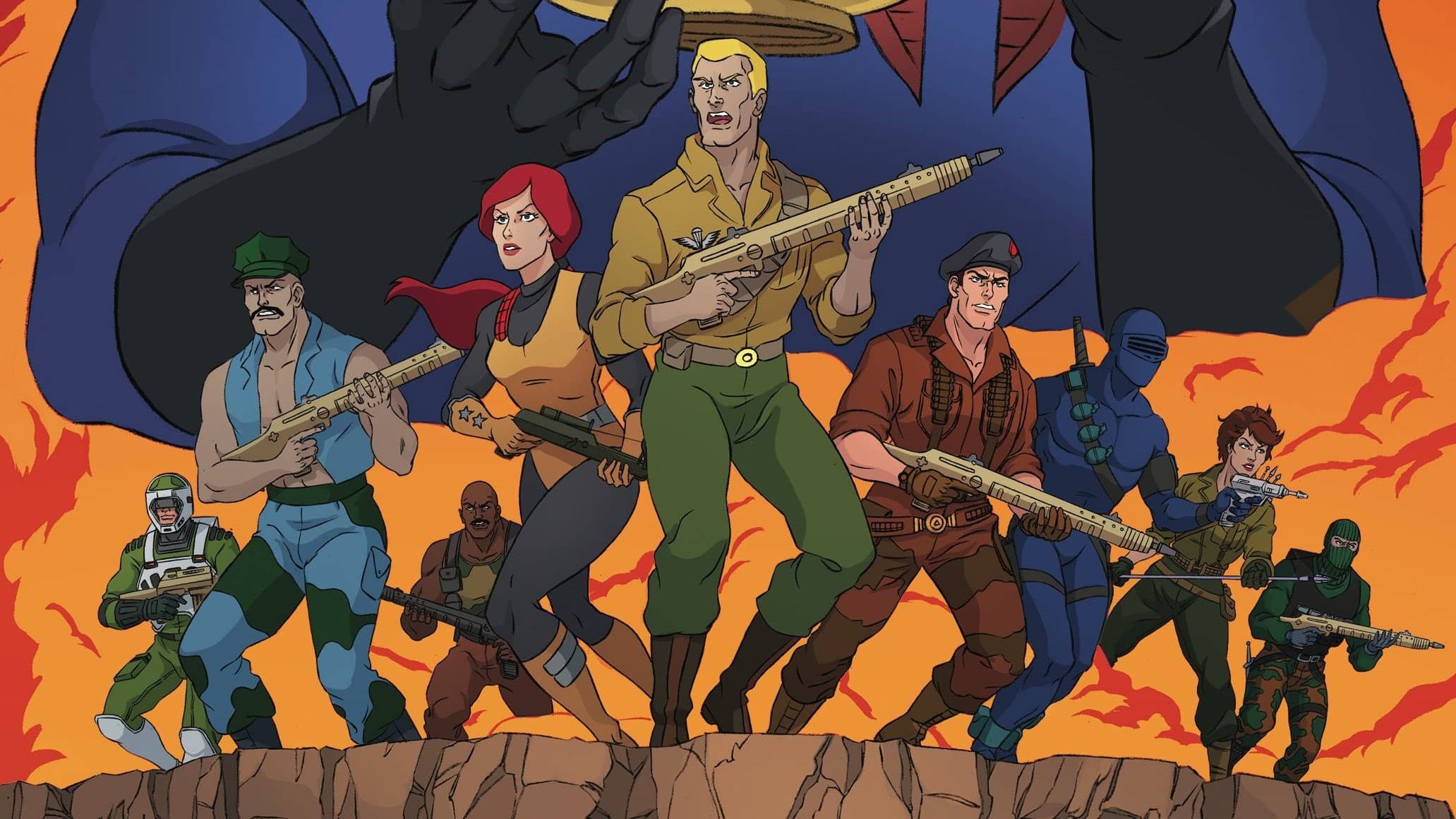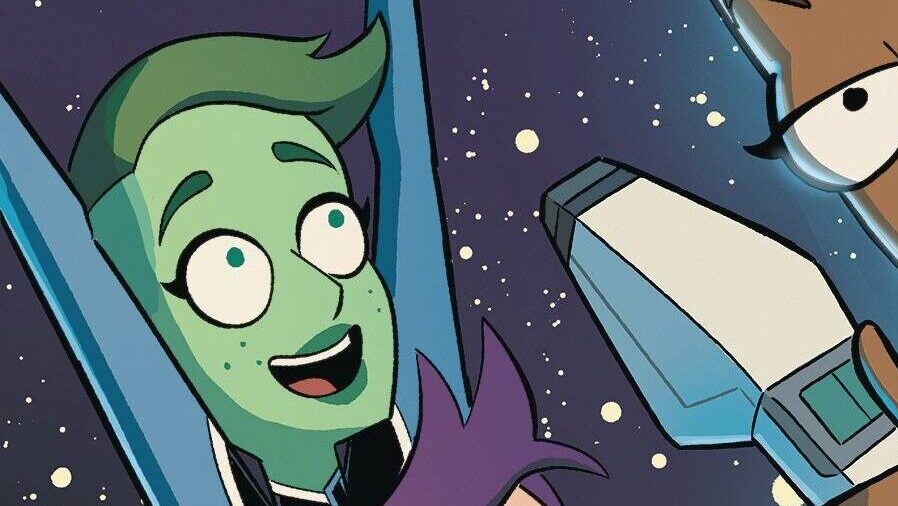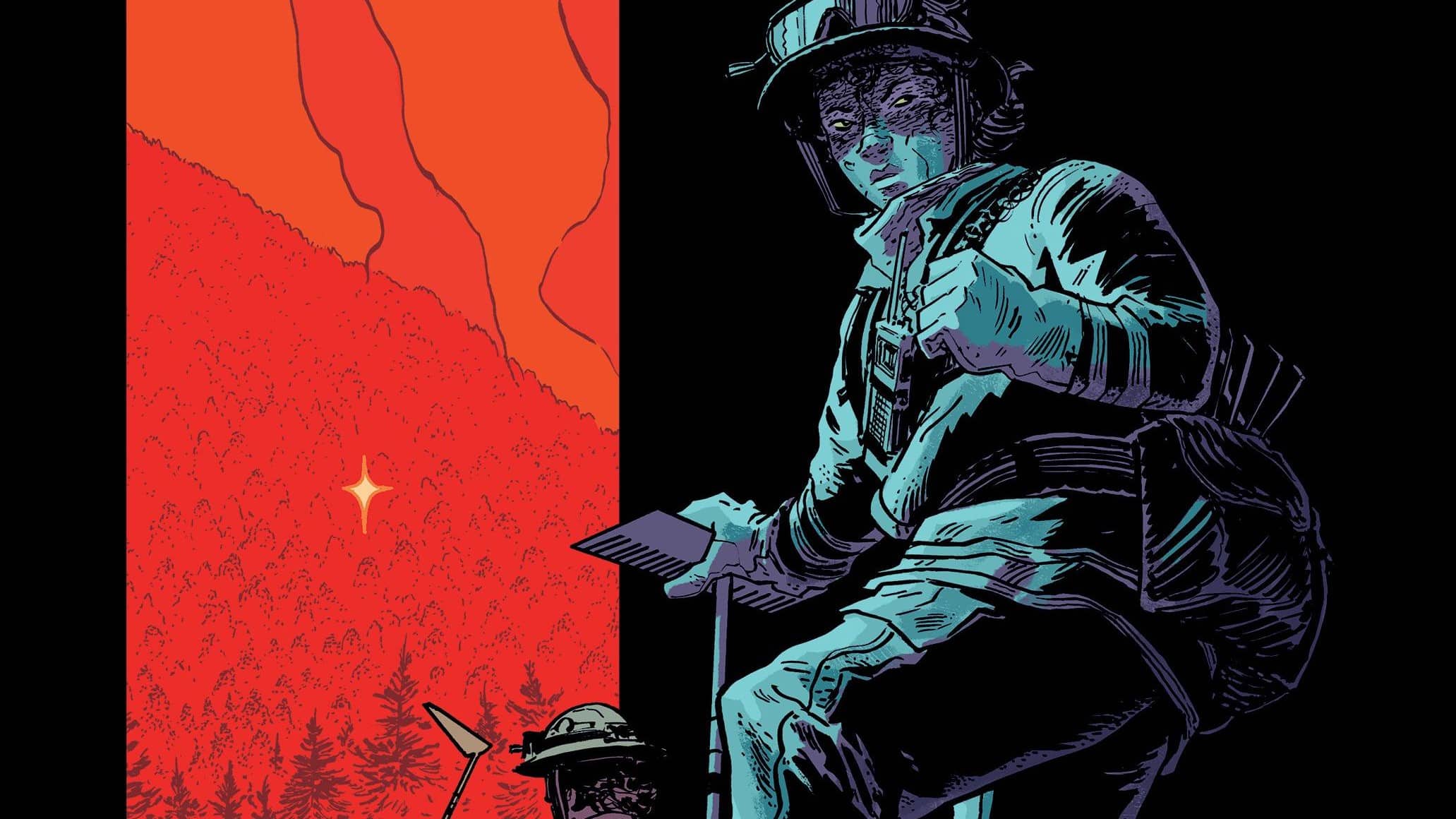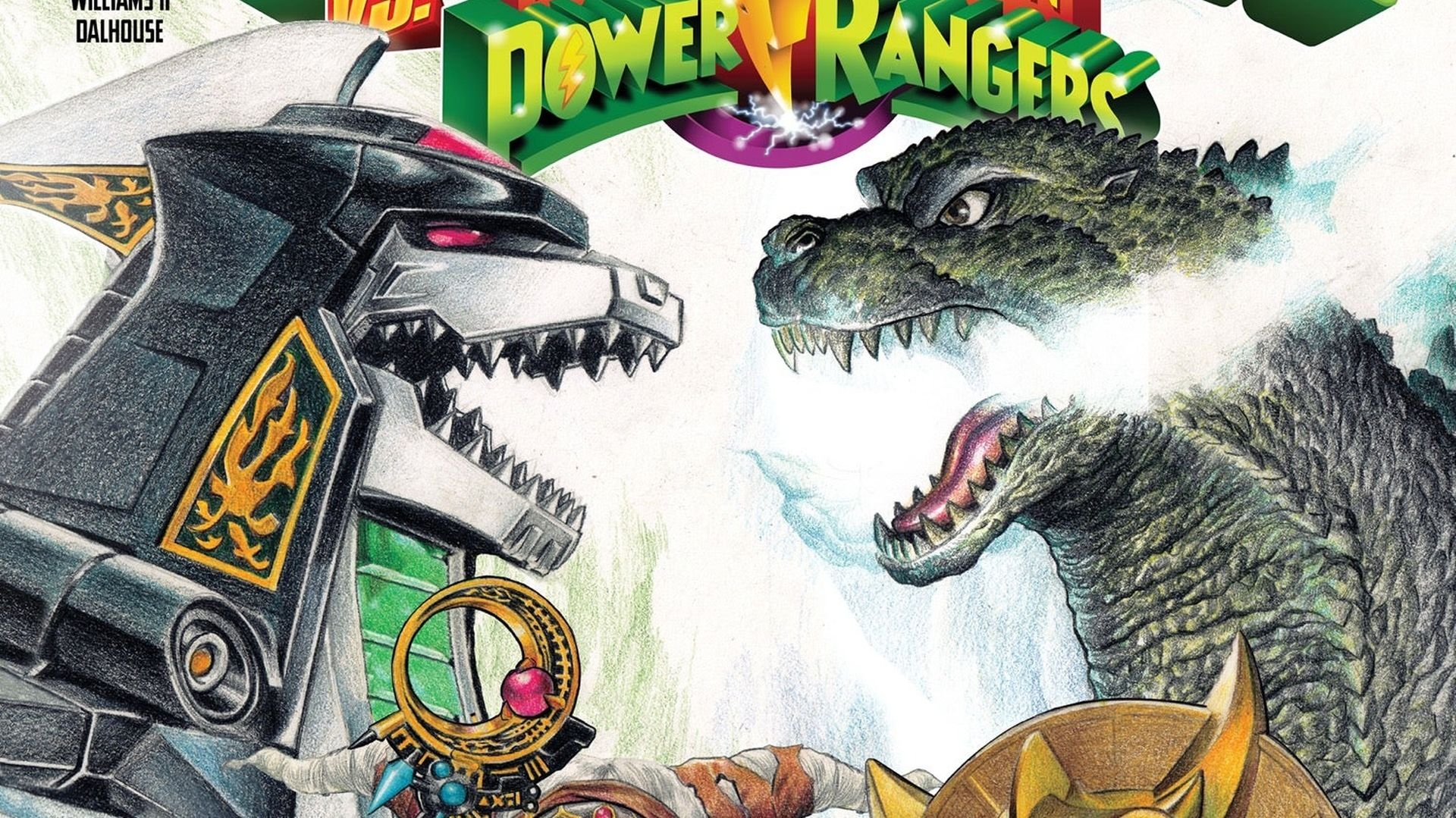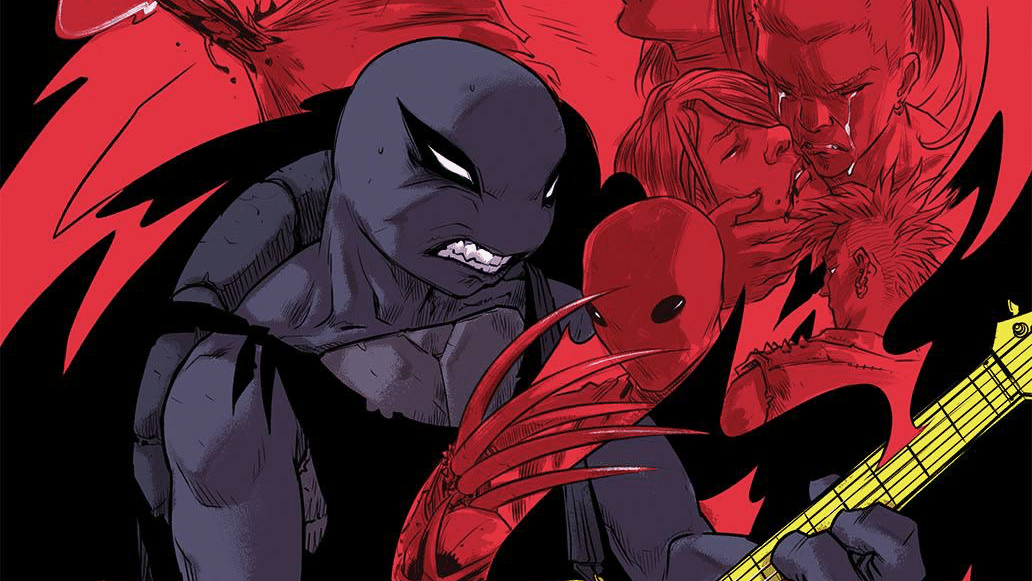When Cobra Commander gets his hands on a genie, it’s up to GI Joe to save the day when his B.A.T.-shit crazy wishes come true in GI Joe: Saturday Morning Adventures #1, written by Erik Burnham, drawn by Dan Schoening, colored by Luis Antonio Delgado and lettered by Neil Uyetake for IDW.
Adapting stories and characters from other mediums in comic books is hardly something new; much of IDW’s current output does that with a variety of properties. But this series takes a slightly different approach, presenting a story not just featuring the cross-media GI Joe characters but a story specifically aping, via the plot, dialogue and art, the tone and style of the 1980s GI Joe cartoon. It’s not just a comic story featuring cartoon characters, but an attempt to recreate a cartoon in comic book form. To call it a noble experiment seems a bit much, but it certainly is a curious one. The end result though, in terms of both the writing and the art, is a bit of a mixed bag.
Plot-wise, writer Erik Burnham does a decent job of crafting a Cobra scheme more tonally consistent with the cartoon which, compared to the (relatively) more grounded plots of the comic book series, tended to be a bit goofier and more outlandish. Cobra Commander acquiring the services of an actual magical genie crosses the very narrow line between acceptably over-the-top cartoon villainy and outright silly villainy, but it’s not too far a cry from the Cobra Commander who tried to take over the world by mounting rockets on Roadblock’s parents’ drive-thru restaurant. Using his wishes to make giant Battle Android Troopers (and then put force fields around them) instead of something far more practical that still doesn’t reach the level of “ultimate power” (which the genie says he cannot bestow) is also pretty in character for Cartoon Cobra Commander.
The plot might be trying a bit too hard, but Burnham is more effective at capturing the voices of the characters relative to their cartoon counterparts. The banter between Alpine and Bazooka, for example, reads exactly like the characters sounded on the show. Similarly, at one point Cobra Commander and Destro snipe at one another (over what Destro charges Cobra Commander for B.A.T.s, no less) like a bickering married couple in an exchange that feels right at home alongside the time Destro dismissively referred to Cobra Commander’s plan to carve his face into the moon as “cosmic graffiti.”
The art, however, isn’t quite as effective. Colorist Luis Antonio Delgado certainly captures the brighter, bolder palette of the cartoon, while Dan Schoening faithfully renders the broader character designs of the cartoon (which were easier/cheaper to animate than more detailed comic book art usually is). But that fidelity, combined with some of the panel layouts, has the unfortunate effect of occasionally making the issue look too much like a Fumetti photo comic, as if the comic is simply the result of screencaps from the cartoon with dialogue bubbles pasted on.

Somewhat ironically then, the art is at its strongest when it steers into more traditional comic book layouts and sequences, such as the battle between one of the giant B.A.T.s and a fleet of Skystrikers. The action in that sequence takes full advantage of the (comic book) medium to present the action more dynamically and with a greater diversity of “camera” angles than was often the case with the action in the cartoon. Therein lies the paradox at the heart of the experiment: The comic is at its best, art-wise, when it’s most like a comic book and least like a cartoon.
For all its faults though, this is still a fun issue. The character voices are emulated well enough that reading the story feels like hanging out with old friends, and the Joe team having to find a way to defeat increasingly tough giant robots lands right in that sweet spot at the intersection of “dramatic” and “ludicrous” in which the best comic book stories land. At the end of the day, this is goofy and fun and not at all deep, but there are worse ways to spend a Saturday morning. Which just might be the point of the experiment.
Knowing Is Half the Battle
- The cast of Joes present in this issue are culled from a variety of different cartoon eras, featuring everyone from the classics like Duke and Scarlett to later additions like Sci-Fi and Mainframe.
- Cobra Commander, when issuing his ultimatum to the world to pay up before he unleashes his enormous invincible robots on the cities of the world, name checks the MASS device and the Pyramid of Darkness, which were the respective MacGuffins of the first two animated miniseries that launched the original GI Joe cartoon.
- Arguably the best part of the issue is that it also adapts in comic book form the famous “Knowing is half the battle!” 30-second PSAs that closed out each episode of the cartoon. Here, computer expert Mainframe intervenes to stop a young fan from going online to flame the creators of a comic book story he doesn’t like. A bit on the nose, but as with the original PSAs, it’s carried by the sheer earnestness of it all.
Austin Gorton also reviews older issues of X-Men at the Real Gentlemen of Leisure website, co-hosts the A Very Special episode podcast, and likes Star Wars. He lives outside Minneapolis, where sometimes, it is not cold. Follow him @austingorton.bsky.social.

